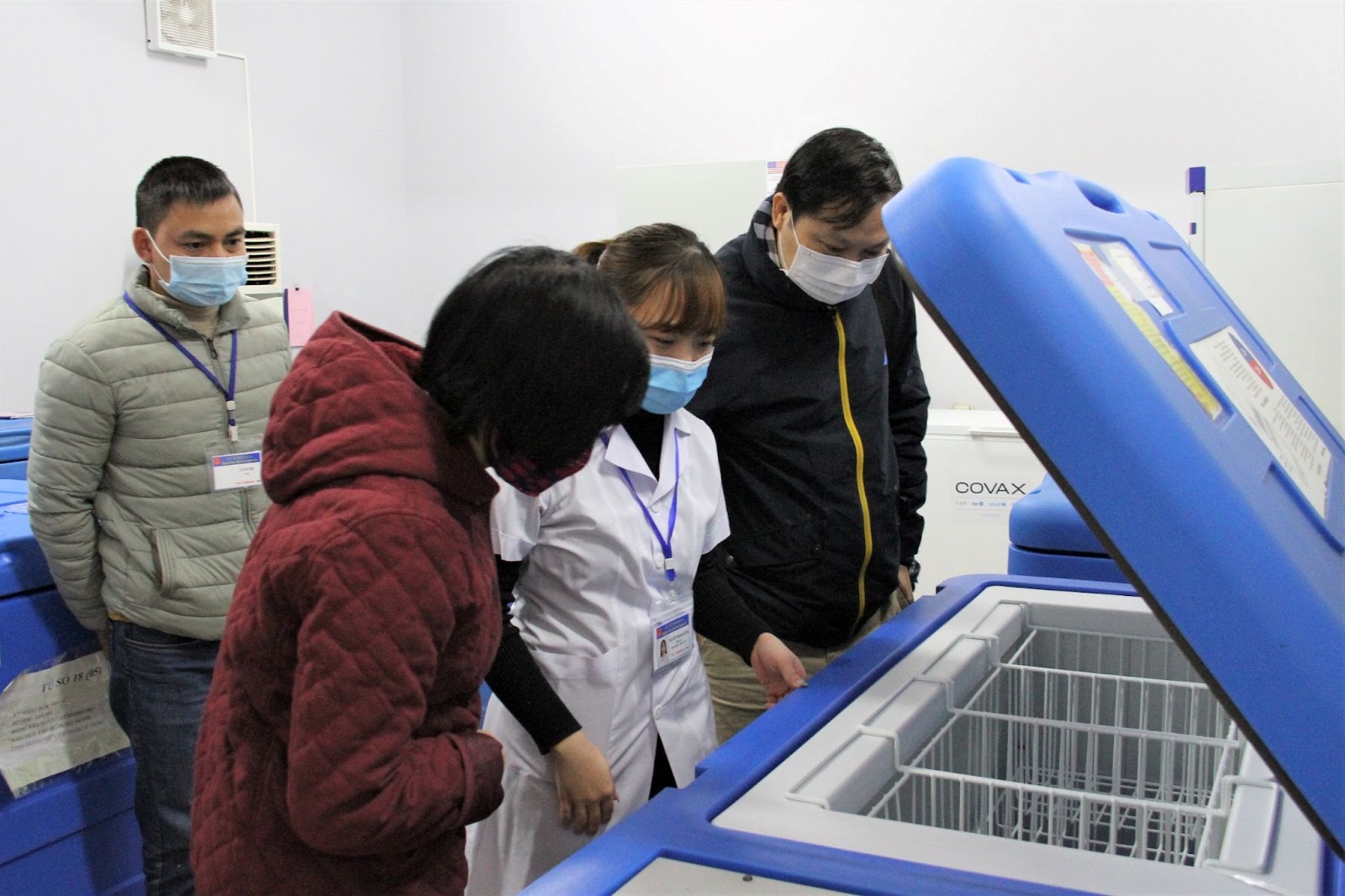How MOMENTUM Continues to Reach the Unvaccinated
Published on April 22, 2022
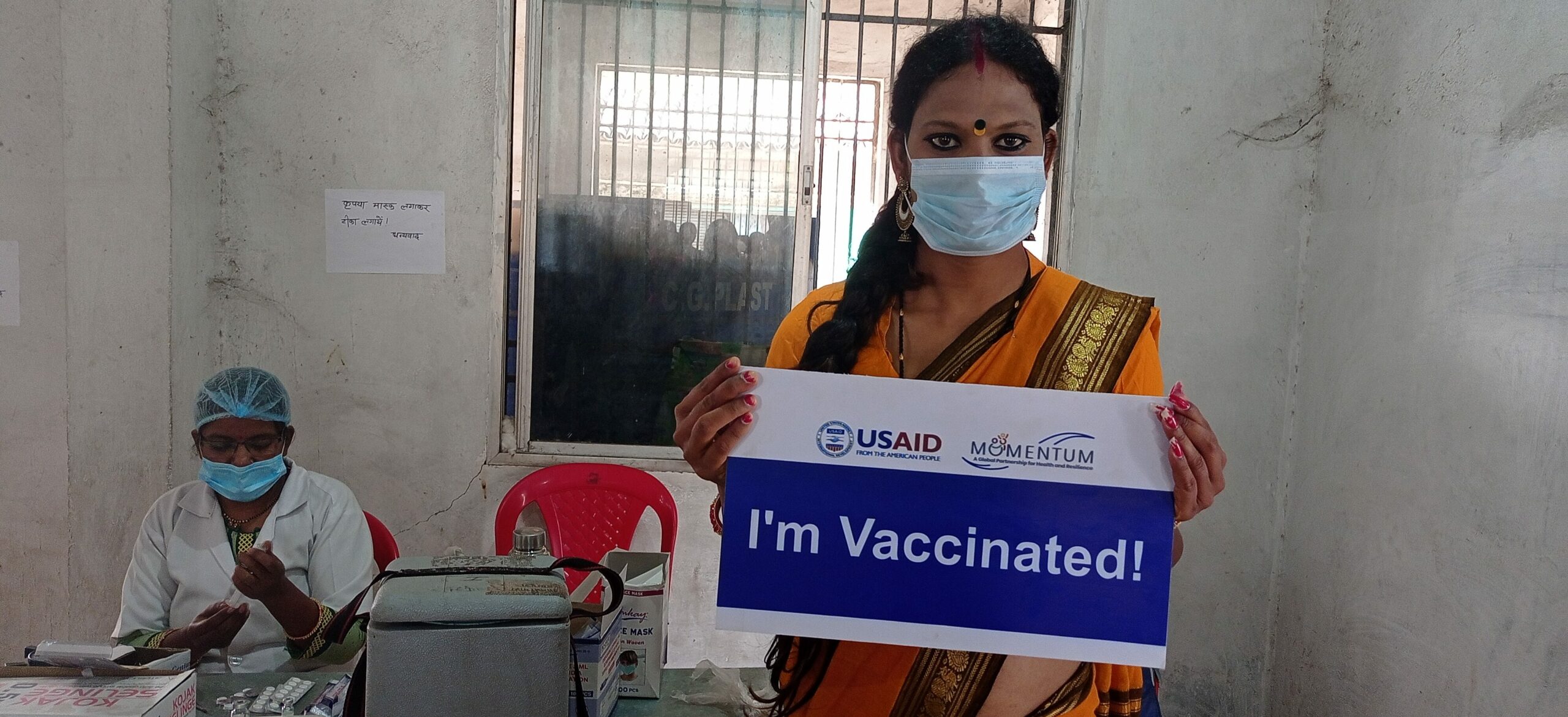
“The global battle against COVID-19 is not done. Instead, the challenge has changed. The lowest-income countries, where vaccinations have reached less than 15 percent of people, are now declining free vaccine supply because they don’t have the capacity to get shots in arms fast enough.” -Atul Gawande, Assistant Administrator for Global Health at the U.S. Agency for International Development and co-chair of the Agency’s Covid-19 Task Force. Washington Post, March 30, 2022.
Getting shots in arms to protect people against COVID-19 requires much more than vaccines. It requires detailed planning to identify where and when to vaccinate priority groups, aligning supply chain systems, adapting service delivery platforms, generating trust and demand for the vaccine, and adapting data systems to track progress. Moreover, the rapid roll out of COVID-19 vaccines is an unprecedented undertaking that has altered the landscape of global immunization. While this process has caused disruptions to routine immunization and other health services, new tools and processes introduced to support COVID-19 vaccination may present opportunities for strengthening routine immunization systems moving forward.
Since late 2020, MOMENTUM Routine Immunization Transformation and Equity has supported preparations for COVID-19 vaccine introduction at country, regional, and global levels. But its efforts significantly increased in March 2021, when USAID accelerated its investments in COVID-19 vaccination, complementing those made via the COVAX facility, the World Bank, national governments, and others. Coordinated vaccination efforts across USAID and other partners are essential to ending the pandemic and its disproportionate effect on underserved populations and maintaining and strengthening routine immunization systems.
To kick off the beginning of World Immunization Week, we want to share the successes in Mozambique, India, and Vietnam, where MOMENTUM works with governments, the private sector, and civil society to distribute and administer COVID-19 vaccines quickly and equitably. We also want to highlight how MOMENTUM is applying learnings from COVID-19 vaccination to identify opportunities for extending immunization services over the life course to support long life for all.
Mozambique
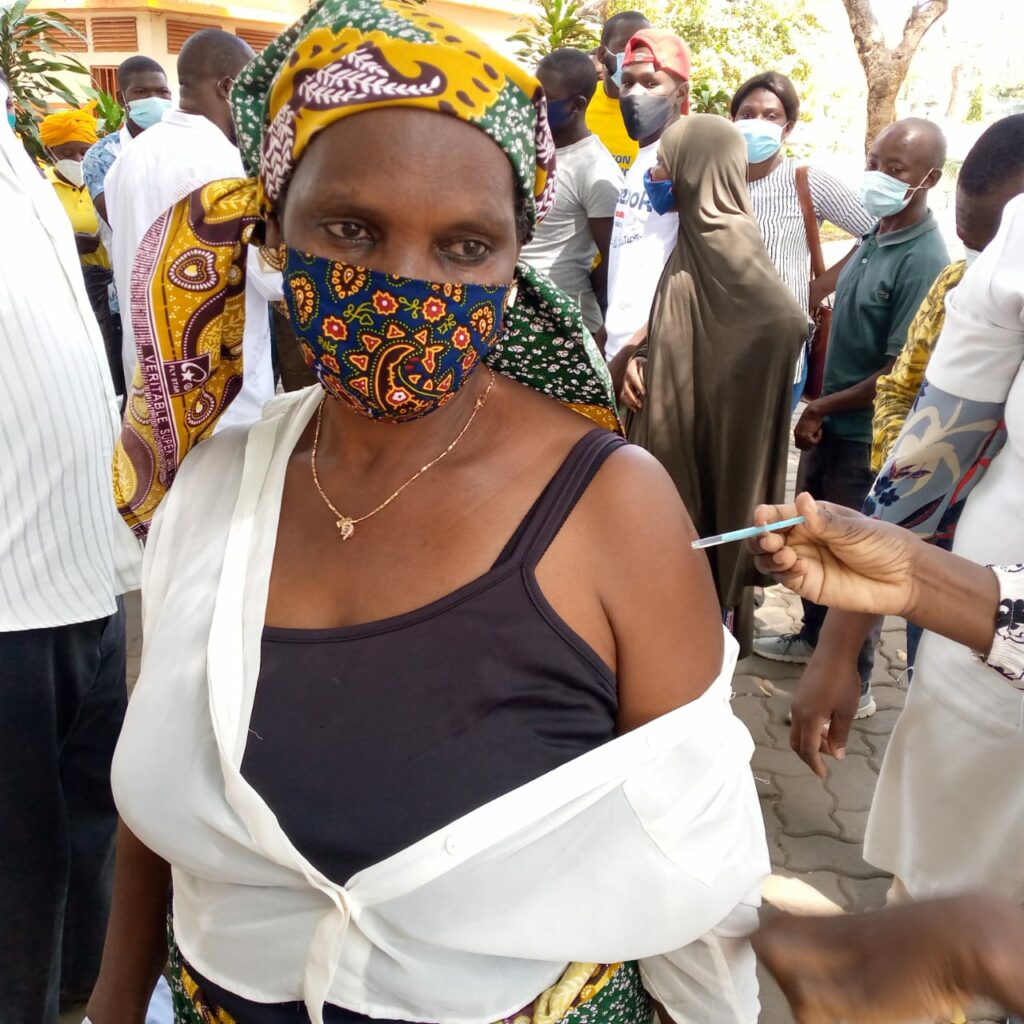
Mozambique faced several supply chain challenges at the start of the country’s vaccination efforts against COVID-19 in early March 2021. “The diverse regimens, or vaccine product types, different time of allocations, cold chain storage, and available capacity to handle the requirements of the various vaccines in Mozambique imposed significant and complex challenges to the Ministry of Health to timely distribute and deliver these vaccines,” said Betuel Sigaúque, Mozambique Country Director for MOMENTUM Routine Immunization Transformation and Equity.
MOMENTUM has worked at the national and provincial levels in Nampula and Zambézia to support the Ministry of Health in overcoming supply and demand challenges around COVID-19 vaccination. The project has helped develop accurate, detailed facility-level plans (“microplans”) to identify and reach priority groups, provided technical assistance on vaccine stock management, and facilitated strategies to improve supportive supervision of vaccinators and other health care workers. More than five million people are fully vaccinated in both Nampula and Zambézia provinces, where MOMENTUM Routine Immunization Transformation and Equity provides support.
MOMENTUM also provides technical support for data monitoring and analysis to reorient the planning process and adapt service delivery platforms to offer COVID-19 vaccination. The project works with local partners to engage communities to increase demand for the vaccine, especially among vaccine-hesitant groups.
As of March 14, 2022, approximately 13 million people in Mozambique have been vaccinated through MOMENTUM and other partners. Of those vaccinated, 82 percent have been fully vaccinated, while others have received at least one dose, and 262,678 received a booster dose. Lessons learned from COVID-19 vaccination are now being applied to routine immunization.
India
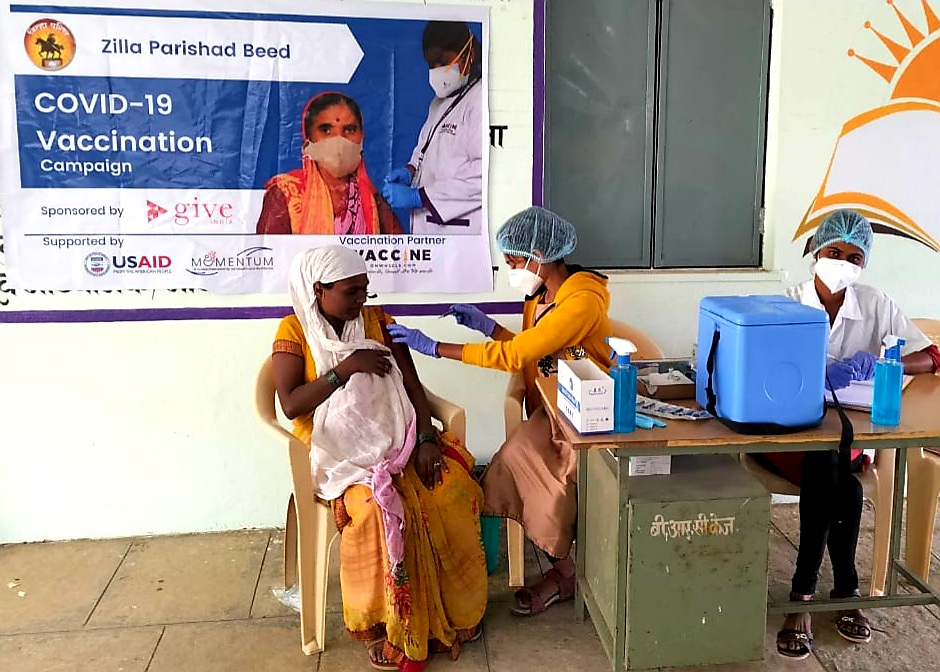
At the beginning of September 2021, only 16 percent of India’s vaccine eligible population were fully vaccinated. Since then, MOMENTUM Routine Immunization Transformation and Equity has collaborated closely with India’s central government and state governments, and other USAID implementing partners to promote increased uptake of the COVID-19 vaccine. MOMENTUM has focused on reaching marginalized and vulnerable populations and identifying obstacles these groups face in receiving vaccinations.
The project works with local non-governmental organizations to reach older people, people with disabilities, people who are transgender and members of the hijra community, and marginalized ethnic groups. The project also supports microplanning, including digitizing tools to facilitate real-time data use and promoting efficient vaccines use. These efforts, along with deep-dive analyses in low coverage districts, have contributed to the program’s ability to reach priority populations and develop tailored messaging and service delivery approaches.
Since November 2021, through direct support to 17 states, MOMENTUM Routine Immunization Transformation and Equity has helped more than 1.7 million people receive a COVID-19 vaccine. Additionally, the project has trained more than 19,000 people on a range of topics, including supply chain and logistics, vaccine service delivery, and community engagement.
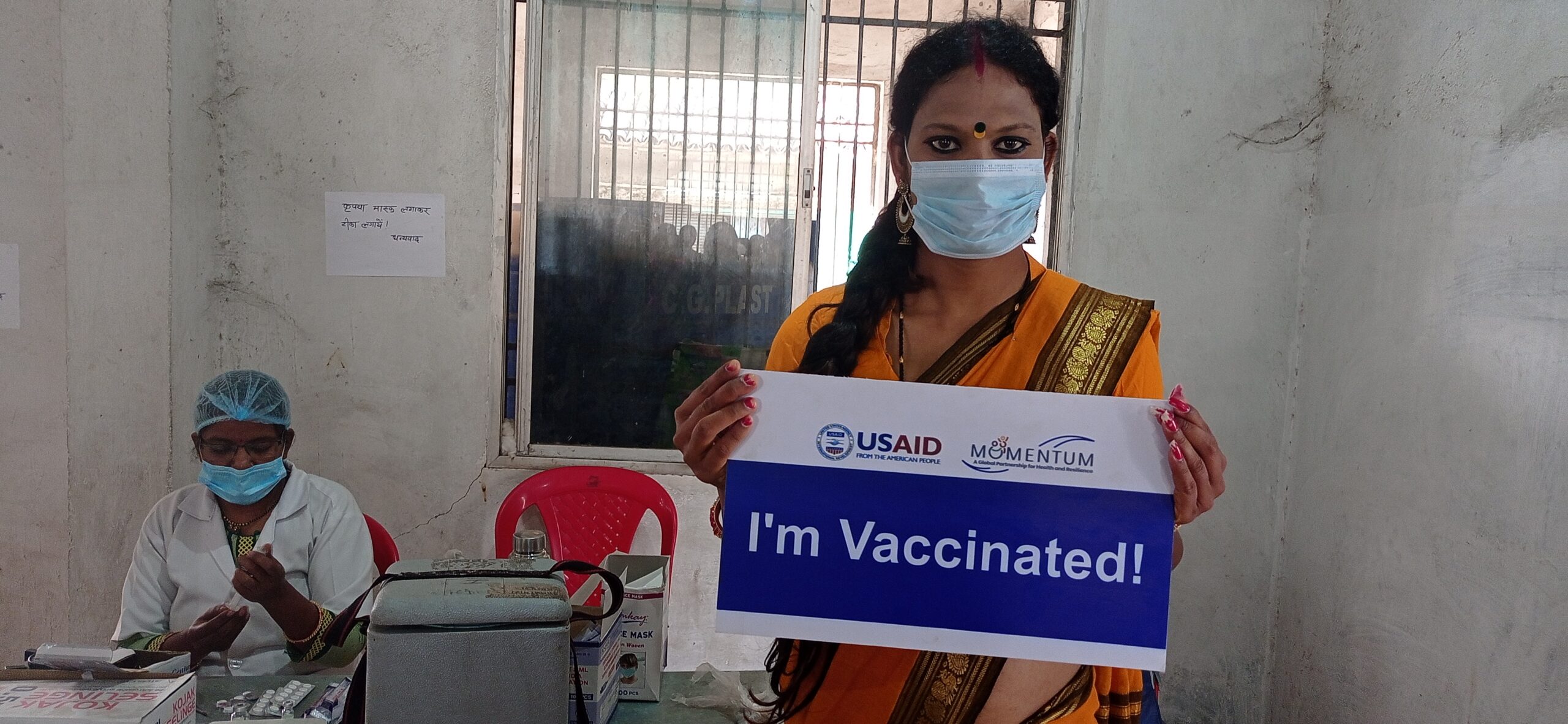
Vietnam
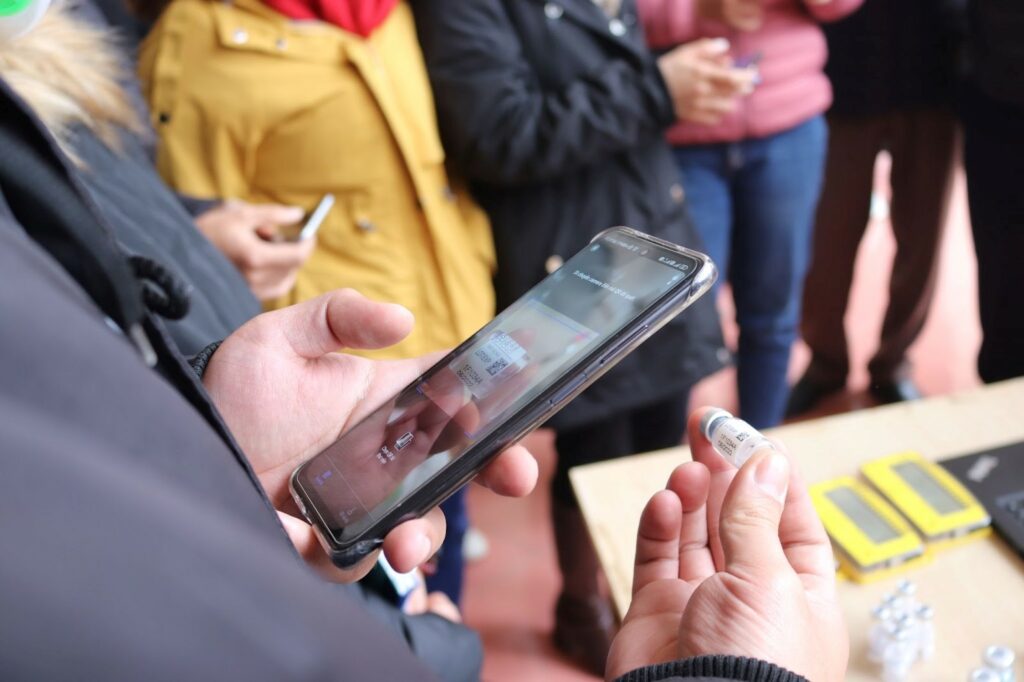
On July 10, 2021, the Government of Vietnam launched an extensive national vaccination campaign for the COVID-19 vaccine. While nationwide COVID-19 vaccination coverage increased rapidly, coverage rates remained lower among the hardest-to-reach populations – those residing in remote, mountainous areas with transportation disruptions, ethnic minority populations, migrant workers, older adults, or those with pre-existing conditions. To support the government’s goal of vaccinating 95 percent of the population against COVID-19, MOMENTUM Routine Immunization Transformation and Equity provides technical support to help the country reach these populations in five mountainous provinces identified by the National Expanded Program on Immunization: Dien Bien, Son La, Hoa Binh, Quang Nam, and Ninh Thuan.
MOMENTUM also conducted detailed situational analyses in each region to identify priority gaps in COVID-19 vaccine delivery at the provincial, district, and commune levels. Technical assistance plans for each province were tailored to reflect the results of the situational analyses. The Provincial Expanded Program on Immunization staff were then trained to use new tools for microplanning and through the use of surveys, were able to identify those who remained unvaccinated. By the end of February 2022, the project trained over 1,300 health staff on a range of topics. Among them included helping health staff plan and execute mobile vaccination campaigns in remote areas of each province, thereby bringing vaccines to villages and communes.
